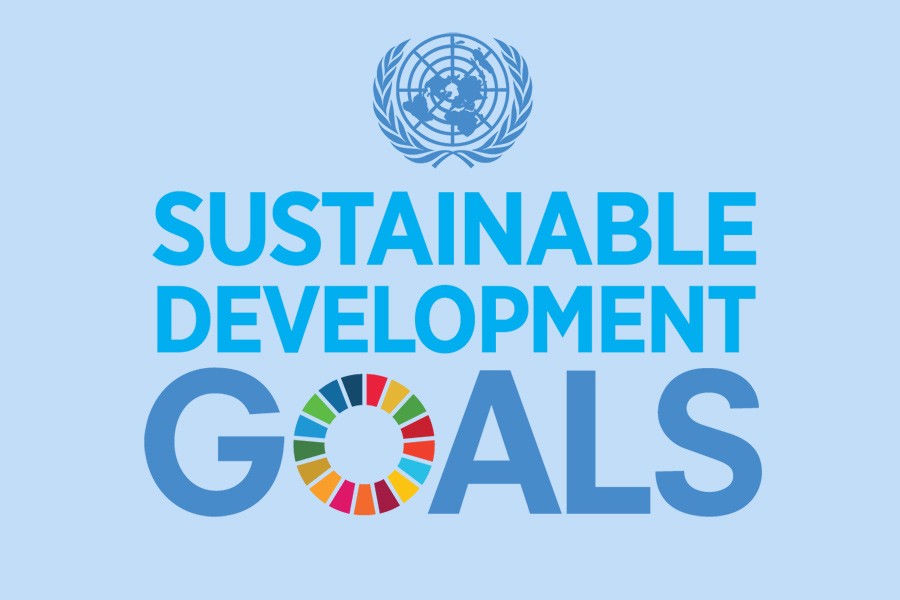The youth is bulging in Bangladesh driving the country towards a demographic dividend, ceteris paribus. Statistics show that approximately over 50 million or around 40 per cent of the people in Bangladesh are between the ages 15-35. Bangladesh is at the doorstep of reaping demographic dividend. Experts are of the opinion that this number of young and prospective people has massive potential to contribute to development, innovation, and social change leading to a developed Bangladesh.
The SDGs established that young people are a driving force behind development - but only if they are provided with the skills and opportunities needed to reach their potential, support development and contribute to peace and security. There is no doubt that Bangladesh made significant progress in terms of Millennium Development Goals (MDG), but the Sustainable Development Goals will not be achieved without ensuring quality education and employment for the youth. The International Labour Organisation (ILO) reports that 40 per cent of the youths aged between 18 and 24 are not in 'education, employment and training.'
Against this backdrop, Citizen's Platform for SDGs, Bangladesh organised a conference at the Krishibid Institution Bangladesh in Dhaka recently where eminent speakers reiterated the importance of synchronisation between youth development in the country and achievements of SDGs.
There is no doubt that our youth force is facing different socio-economic and political challenges. It is imperative that the government left no stone unturned to resolve the problems if we are committed to attain SDG goals within the stipulated time frame by 2030.
"In many cases, the potential of the youths remain unused; one in 10 young people are unemployed; and one in three highly educated youths also cannot manage jobs", said Debapriya Bhattacharya, convener of the Citizen's Platform for SDGs adding that in fiscal 2016-17, the rate of unemployment among persons with education of up to tertiary level stood at 11.2 per cent, up 9 per cent from a year earlier, and society is yet to ensure the rights of youth, including providing quality education.
Bhattacharya, also hinted at the role of political parties at large in committing to the issues of the youth as the country's young voters now range from 40 million to 50 million. "After assuming power, the new government should implement the commitments made to the youths."
"The latest youth movements for quota reform in civil services, ensuring safe roads, withdrawing the VAT on education and the Shahbagh movement have inspired us," he added.
Society would have to use the youths properly to ensure the country's prosperity, said Biren Sikder, state minister for youth and sports."We will become a developed country by 2041 based on the power of youth," he added.
As revealed by reports of various newspapers, on the Citizens' platform, a number of eminent experts deliberated upon the importance of youth development in fulfilling the goals of SDGs. For example, discussants underscored the need for science-based education systems as it would ensure the required skilled manpower for industries. It has also been argued that the country does not need more commerce graduates at this moment; it requires science-based graduates and skilled manpower for managerial positions. Bangladesh has to pay $4.5 to $6 billion per year for hiring foreigners for managerial posts in different industries whereas the youths of this country can take over these positions if they could groom themselves through public and private sector patronage.
Hossain Anwar, a researcher on Youth Empowerment notes: "Youth in a country is the most viable and potential human resource not only in population structure but also in social structure. Without proper and integrated bio-social development of the youth a nation cannot achieve her human goals intended. Although the government of Bangladesh has formulated policy, plans and programmes for youth welfare and implementing those through its agencies and NGOs, relevant literatures suggest that youths in this country, irrespective of all age-grades and regions, face a lot of socio-cultural problems in which they cannot develop and empower themselves properly. As a result, they cannot play their significant roles in the country's socioeconomic development and change. One of the most important impediments to their empowerment, particularly in Bangladesh, is politicisation of the youth force, using the youth as means to pursuing narrow political interest. In educational institutions, from schools to universities, students are used as political cadres at the cost of their studies. Another important impediment is the lack of an education system that caters to the need of society, business and trade. Employers allege that they get graduates but not employable graduates indicating that class-room lectures or learning don't fit practical purposes. The third important barrier is intolerant attitude of politicians in accepting youths' voice especially when it comes to challenge staus quo. Last but not least is the growing inequality in income and wealth that drives the youth force into despair.
By and large, the Citizens' Platform deserves thanks for organising an event that is closely linked to the attainment of SDG goals and therefore for Bangladesh's development. We should always remember that to deliver demographic dividend at our doorstep, traditional ways of addressing youth problems may not work well. In fact, except some sporadic steps, we have not systematically done anything to develop the youth force. History tells us how this force shaped our socio-cultural and political landscape. Let us use them apolitically to pursue our dream of reaping home demographic dividend.
Abdul Bayes is a former Professor of Economics at Jahangirnagar Universiy.


